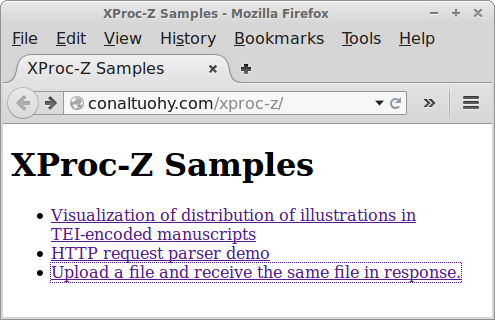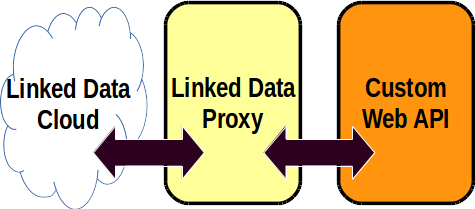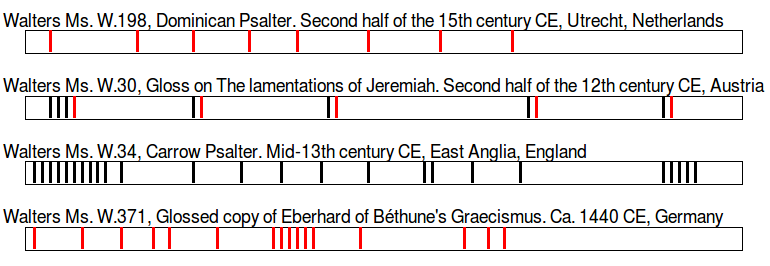Notes for my Open Repositories 2017 conference presentation. I will edit this post later to flesh it out into a proper blog post.
Follow along at: conaltuohy.com/blog/analysis-policy-online/
Continue reading Analysis & Policy Online
Tag: XProc-Z
Linked Open Data built from a custom web API
I’ve spent a bit of time just recently poking at the new Web API of Museum Victoria Collections, and making a Linked Open Data service based on their API.
I’m writing this up as an example of one way — a relatively easy way — to publish Linked Data off the back of some existing API. I hope that some other libraries, archives, and museums with their own API will adopt this approach and start publishing their data in a standard Linked Data style, so it can be linked up with the wider web of data.
Continue reading Linked Open Data built from a custom web API
Beta release of XProc-Z web server framework
I have at last released a “final” version of my web server framework, XProc-Z, for testing. The last features I had wanted to include were:
- The ability for the XProc code in the web server to read information from its environment, so that a generic XProc pipeline can be customized by setting configuration properties.
- Full support for sending and receiving binary files (i.e. non text files). XProc is really a language for processing XML, but I think it will be handy to be able to deal with binary files as well from time to time.
- A few sample XProc pipelines, to demonstrate the capability of the platform.
 Continue reading Beta release of XProc-Z web server framework
Continue reading Beta release of XProc-Z web server framework
Long running and asynchronous processes in XProc-Z
I added a useful feature to my web server framework XProc-Z, to allow it to run processes that take a long time – longer than the lifetime of an HTTP request.
Specifically, I had in mind running OAI-PMH harvests, in which a harvester may need to run for hours and make hundreds or thousands of HTTP requests of its own, in order to download a large set of metadata records. But any long running process faces the same issue: if a person makes a request to initiate a long running process, using a web browser, the server can’t afford to wait until the process is complete before it responds, because the user’s HTTP request will time out. Instead, the server needs to return a response to say “process has started…” and then to continue the processing in the background.
Continue reading Long running and asynchronous processes in XProc-Z
XProc-Z
Last weekend I finally released my latest work of art; a software application called XProc-Z. It’s a fairly small thing, but it’s the result of a lot of thought, and I’m very pleased with it. I hope to make a lot of use of it myself, and I hope I can interest other people in using it too.

